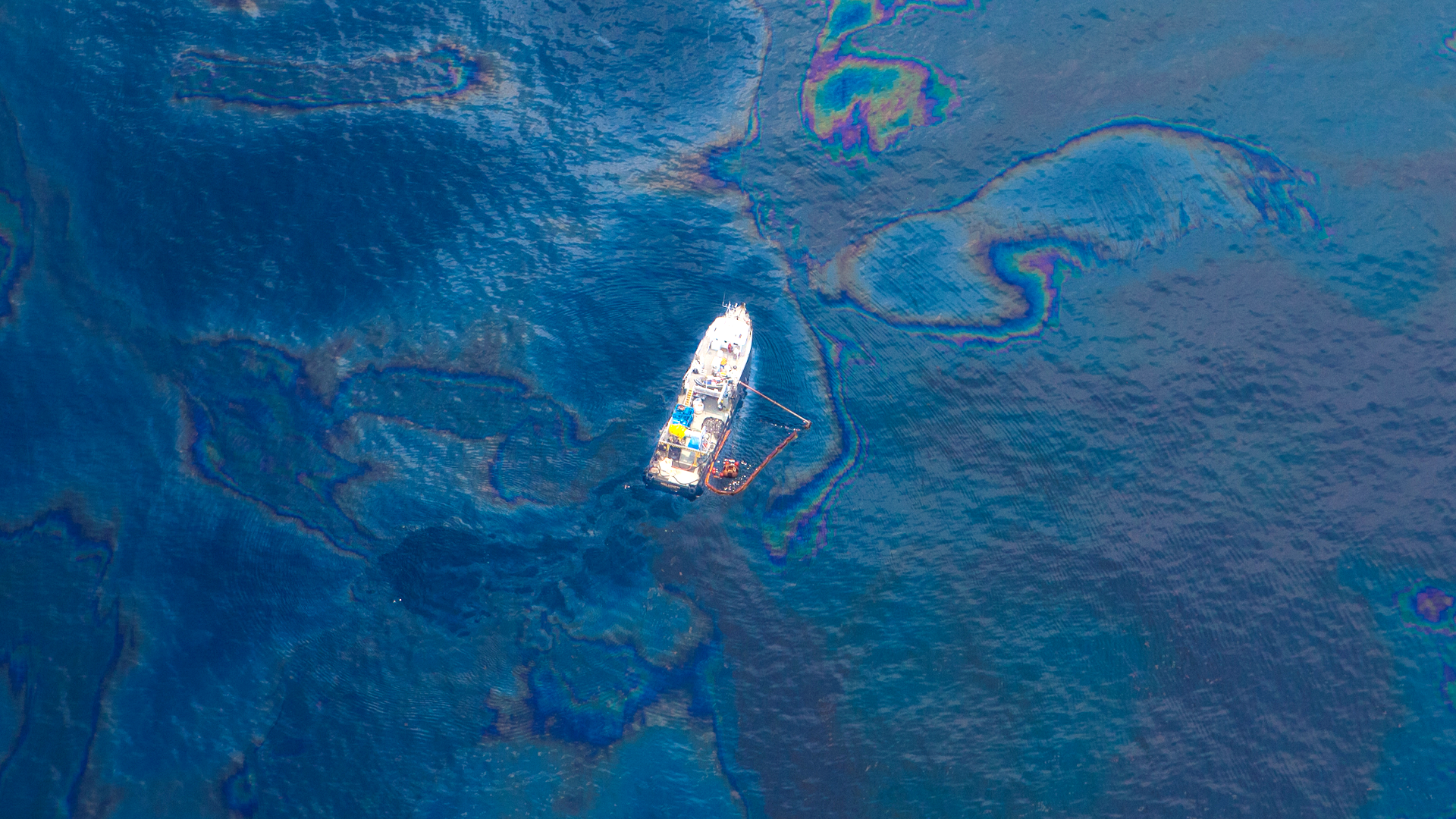Thirteen years after the Deepwater Horizon Oil Spill, those who helped clean it up are suffering from mental and physical illness. The disruption of their daily lives should disrupt ours, too.
In 2010, the Deepwater Horizon oil spill unleashed an environmental catastrophe, causing irreparable damage to ecosystems and communities. A recent Guardian investigation has explored the long-term impacts of the disaster, highlighting the human devastation that still ripples thirteen years on.
BP’s oil spill was headline news for its environmental impact in 2010. But beyond the visible devastation, first responders to the scene are grappling with mental and physical health implications.
Individuals like Sam Castleberry, 59, have had to give up their full-time jobs as they battle chronic illness. Castleberry has had 18 rounds of chemotherapy after being diagnosed with prostate cancer in 2020. The disease has now spread to his liver, and stops him from carrying out daily tasks.
Castleberry and 33,000 others were hailed as heroes when they rushed to the scene of the Deepwater Horizon oil spill and helped clean up America’s coastlines. The spill remains the largest ever in US waters.
BP had hired workers to rake up globs of oil that had washed ashore in 2010. While the international community agonised over environmental damages, first responders were silently facing immediate health impacts, such as skin and respiratory issues.
Now, those affected are suing BP. The toxic chemicals present in the spilled oil, such as polycyclic aromatic hydrocarbons (PAHs) and heavy metals, have been linked to various long-term health problems, including cancer, cardiovascular disease, and neurological disorders.
It’s not just physical side-effects that have uprooted these lives, either. According to the National Institute for Occupational Safety and Health (NIOSH), first responders have been found to have increased rates of respiratory symptoms, neurological impairment, and even depression.
Witnessing environmental devastation, struggling to mitigate the consequences, and experiencing the loss of lives in affected communities were all factors in the deterioration of first-responders’ physical and psychological well-being.
The impacts are still resonating long after the oil spill itself. Medical expenses, loss of employment, and ongoing healthcare have all caused financial struggles for first responders, while a lack of support in addressing their mental health issues has caused a mounting battle to cope with the day-to-day.
Sara Sneath and Oliver Laughland have pointed out the vastly different treatment of first-responders across two American tragedies.
While the courage of the oil spill clean-up workers is comparable to the heroism of first responders during 9/11, the former have received pitiful public support.
Riki Ott, a toxicologist who now advocates for oil spill clean-up workers, said ‘What resident and professional oil spill responders do is exactly what professional firefighters and emergency responders everywhere do: put their lives on the line to protect ours’.
Coastal oil spill responders live in some of the poorest parts of America, and have been left to cope with the aftermath of the event by themselves. By contrast, those on the frontline of 9/11 have been rightly cemented into public memory.




















